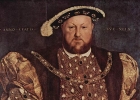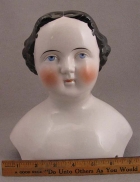General
When considering planning for any topic perhaps the first question should be to question your rationale for teaching this topic and how it relates to wider issues such as diversity, learning outside the classrooms, and whether to teach history discreetly or as a part of meaningfully linked cross curricular approach. In this section, you will find articles, guides, resources that will support you to develop your planning and helping children to make progress.
-

Progression and coherence in history
ArticleClick to view -

Pupils as apprentice historians (3)
ArticleClick to view -

Whose history is it anyway?
ArticleClick to view -

Britain, Europe and the World?
ArticleClick to view -

A view from the classroom
ArticleClick to view -

History, artefacts and storytelling in the 2011 primary curriculum
ArticleClick to view -

Sutton Hoo - Classroom archaeology in the digital age
ArticleClick to view -

Artefacts and art facts: images of Sir Francis Drake
ArticleClick to view -

Extending Primary Children's thinking through artefacts
ArticleClick to view -

Doing History with Objects
ArticleClick to view -

Archaeology: A view from the classroom
ArticleClick to view -

Teaching history to young children
ArticleClick to view -

In my view: We must support gifted historians from an early age
ArticleClick to view -

Oral history, a powerful tool or a double edged sword?
ArticleClick to view -

Ways of making Key Stage 2 history culturally inclusive: A study of practice developed in Kirklees
ArticleClick to view -

Planning for diversity in the Key Stage 2 history curriculum
ArticleClick to view -

Asking the right questions. A study of the ability of KS2 children to devise and use questions as part of their own research
ArticleClick to view

